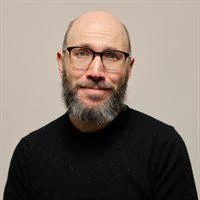
Connect
About
David Pinzur is an economic sociologist whose research focuses on the often invisible, taken for granted, socio-material infrastructures that underpin the operation of markets. Particularly, his work addresses how the infrastructures of commodity derivative markets shape economic and societal engagement with the natural world and its possible futures. His interests span the sociology of markets, sociology of finance, science and technology studies, culture, and environmental sociology.
Key expertise: Markets, Finance, Knowledge, Science, Technology
Research
The substantive focus of David's research is commodity derivatives (future-oriented contracts promising the exchange of natural commodities like oil, wheat, lithium, or cotton) and the markets on which they trade. Commodity derivatives and their markets not only link together two dissimilar worlds – a physical world with ecological and distributional limitations with a boundless, conceptual world of financial exchange – but rely on the latter to make decisions about the former. They are quite possibly the central economic mechanism by which societies manage and coordinate their relations to the material world.
David’s research explores several questions. What are the social, technological, and cultural components that construct this link between the natural and financial worlds? How and why does this link look different across markets, in distinct times and places, or for different commodities? How do the these links reflect and entrench, or alternatively, challenge existing inequalities? How do they shape our ability to engage with the future?
He pursues answer to these questions in two projects. The first – the subject of a book in progress – looks at the construction of agricultural futures markets in the decades following the U.S. Civil War. It traces the efforts of the Chicago Board of Trade and New Orleans Cotton Exchange, two of the largest and most important commodity exchanges in the post-bellum era, to build derivative markets from scratch. This research aims to discover the distinctive challenges that commodity derivatives pose for markets and the divergent ways in which these were addressed in key, early cases.
The analysis focuses on the infrastructures that both make possible and subsequently set conditions for action on these markets. These infrastructures draw together material technologies (e.g., standardised contracts, telegraphic networks, grain elevators), organised practices (e.g., protocols for grading and delivering physical goods or clearing trades), and cognitive frameworks (e.g., ideas about risk or how prices are connected across markets) into operational wholes. While Chicago and New Orleans faced the same derivative puzzles, the market infrastructures that solved them looked quite different. David locates the causes of this infrastructural divergence in cultural, material, legal, and theoretical conflicts among the myriad parties involved – commodity exchanges, farmers, speculators, warehousemen, telegraph companies, federal legislators and courts. He also traces the consequences of these distinct infrastructures, showing the differences in liquidity, leverage, and speculation they produced and distinct styles of trading they supported.
David’s second project, in its early stages, brings his focus to the present day and a new commodity: crude oil. This research investigates the role of crude oil derivative markets in coordinating expectations of the energy future among parties as diverse as banks, hedge funds, state and private statistical agencies, policymakers, price reporting agencies, and oil companies. How do derivative prices enter into these actors ways of envisioning, calculating, or justifying positions in relation to the future? The project further delves into the specifics of how these actors use distinct, yet interrelated tools and methods – financial, geological, statistical, organisational – to produce authoritative predictions of the energy future. In contrast to the mainstream of research in this area, David’s project highlights not the instrumental power of financial actors or the oil and gas industry, but rather what Jens Beckert calls the ‘expectational power’ to shape shared, legitimate visions of the future. The question here is how oil derivative markets enter into the politics of how to engage the natural world in an uncertain future. The research aims to understand how oil’s construction as a financial product relates to its resilience as an energy source.
Making commodity derivative market infrastructures the subject – rather than the substrate – of sociological inquiry reveals them to be fiercely contested objects that can push behavior in distinct directions. David’s research seeks to uncover these hidden politics as a first step to producing more just and equitable engagements with the natural world in the future.
David is part of the Economic Sociology and Knowledge, Culture, and Technology research clusters.
Teaching
David Pinzur teaches on the MSc Economy and Society programme, convening courses on Economic Sociology and the Social Life of Infrastructure.
He co-supervises PhD projects engaging with: the instrumentalisation of emotion in branding campaigns (Nicolas Arenas); the disputed political and economic character of "social value" (Amani Bhobe); and the moral and economic calculations of impact investment fund managers (Jack Winterton).